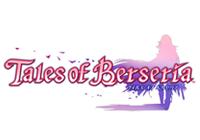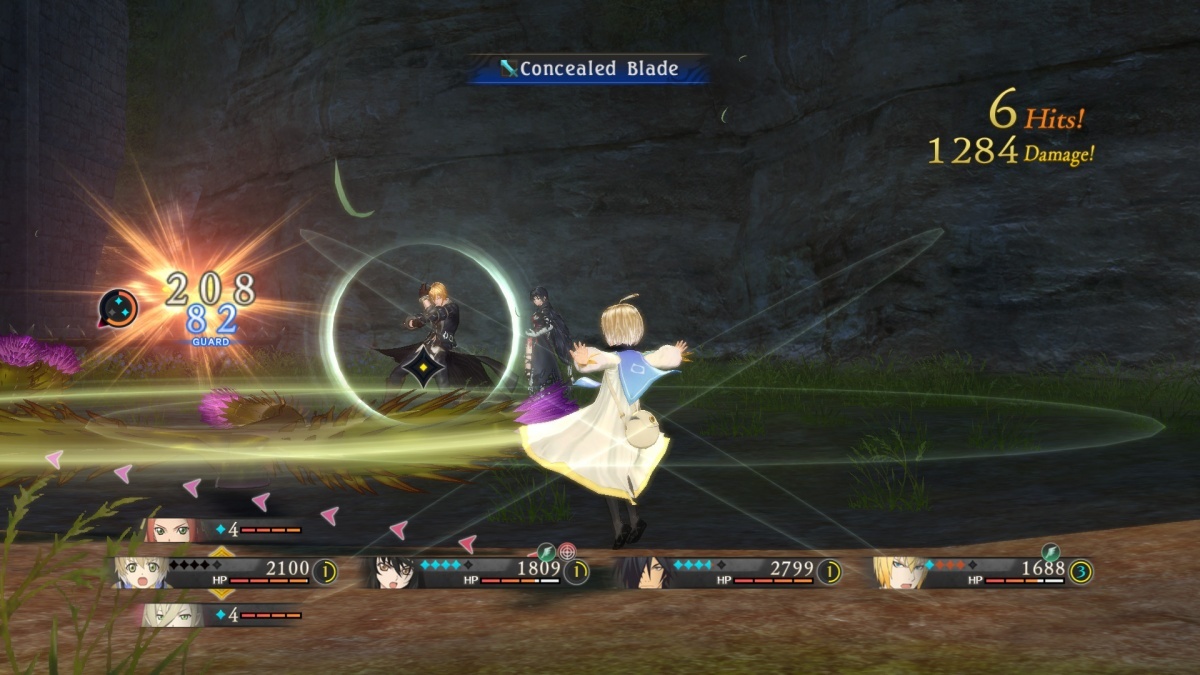Tales of Berseria (PC) Second Opinion Review
By Ian Soltes  07.03.2017
07.03.2017

Tales of Zestiria was a tough act to follow. Not because it was some amazing powerhouse of gaming that few could hold a candle to, but because it's shortcomings left plenty a sour taste in people's mouths. Tales of Berseria then decided to come in and, on top of having to make up for those shortcomings, held the added burden of being a prequel. Does this newest entry, already famous for its darker tone, actually manage a task many other games fail?
The Tales series is known for many things. Being 'dark' is not one of them. While plenty of stuff is certainly mature and handled beautifully and there are plenty of disturbing, tragic, or other such moments scattered throughout, the series as a whole has remained on the lighter side of the scale. So having a main character that literally has the power to devour beings in her arm and starting off with a tonne of front-loaded moments that would quickly push most other things into the 'Mature' rating is a controversial move at best. Fill it out with a player character who is most certainly not a hero, a cast that contains literal hellions, and make it a prequel to boot, there is little doubt that Berseria is driving in a sharp new direction.

A direction that has succeeded mostly beautifully. Velvet Crowe is a woman who has had quite a rough spot in her life. Having her family killed, her arm chopped off and replaced with a demonic hand that consumes beings, then being thrown into a prison for several years where the choice was to either kill and eat other inmates or die, all at the hands of someone she trusted, tends to affect one's mood. However, the villain made the one mistake far too many villains make: Letting her live. Now she's broken out of prison to find the person who murdered her family being lauded as a hero while she has lost her humanity and is now part demon forever. She is out for blood and is going to do anything she possibly can to get revenge.
Along the way, she gathers together companions but, in a surprising twist, they aren't all united to fight against some great evil or the like. Only one, maybe two, are even human and they all have various goals in mind. The thing about this darkness in both the characters and story is that, while it can elicit negative feelings, whoever wrote the story and characters was actually fairly competent. The result is a very interesting and delicate balance of walking a tightrope where one push too far would result in the main characters, and potentially the entire game and plot, becoming unlikable. The game never does that, though. In its place is a well-written and fairly solid story detailing Velvet's quest for revenge and how it changes the people she meets along the way along with learning how said quest ends up changing the world around in Zestiria. As a result, instead of being just another dime-a-dozen dark story, it ends up being much fuller and stronger than most plots of this type ever aspire to be.

The gameplay is much improved over its prior entry as well, though not perfect. While using the traditional action gameplay that the series is known for, much has changed and the combat ends up harkening back more to Tales of Graces than Zestiria. The player is allowed to build up to four combo chains using various artes and can switch between said chains right there on the fly. The system functions on a 'soul' system in which the player is granted a certain amount of 'souls' that recharge for their combos. Doing various things in battle can end up boosting the cap that the player has, lowering it, or worse, raising the enemy's cap letting them do more powerful moves. As a result, getting good at combat is more than a matter of spamming attack and combo chains and requires the player to fully understand how to handle the various methods of soul management, which is a very healthy change. It doesn't come without a cost, however, as this system tends to be harder to utilise for people wanting to play spellcasters and seems to have been made with the notion that the player will be playing as Velvet as opposed to one of the rest of the cast.

Equipment has received a big overhaul as well. While the game does still rely on random drops each weapon type comes with an innate skill that will be slowly learned as a character is equipped with it along with a few other skills making for a much easier slope. Additionally, each weapon can be upgraded multiple times via breaking down weapons to obtain various parts then using the parts to upgrade other weapons. While not 'perfect' this is still leaps and bounds better than what prior attempts at such a concept have yielded especially since many of those ended up being far too confusing for practical use.
That's not to call the title 'perfect' though. For one, while it has improved over its predecessor, it still tries to use the open-world battle system, which can still result in areas that feel artificially inflated to deal with enemies. Much of the game's charm relies on it being able to walk that thin line of darkness as well and it's entirely understandable if someone ends up uninterested. Not to mention a bunch of smaller flaws that slowly do pile up to become major annoyances (certain enemies seem to revel in stunlocking it seems) and it's clear the game isn't without fault.

Cubed3 Rating
Great - Silver Award

At the end of the day, there is one simple truth. This is a Tales game—and a good one too. These titles have always brought quality. Even if some compare them to JRPG 'filler,' they're good filler! The question was never 'will Berseria be good, but, rather, 'will it be good enough to make up for Zestiria?' The answer isn't just a 'yes,' but one strong enough to potentially remind people who don't actively play the series that the games are not generic and are all very full, fleshed out, and developed. Berseria is no exception to this and its darker tone is a solid reminder of this fact.

![]() 8/10
8/10
![]() 8/10
(1 Votes)
8/10
(1 Votes)
 Out now
Out now  Out now
Out now  Out now
Out now  Out now
Out now Comments
Comments are currently disabled

 Sign In
Sign In Game Details
Game Details Subscribe to this topic
Subscribe to this topic Features
Features






 Top
Top

